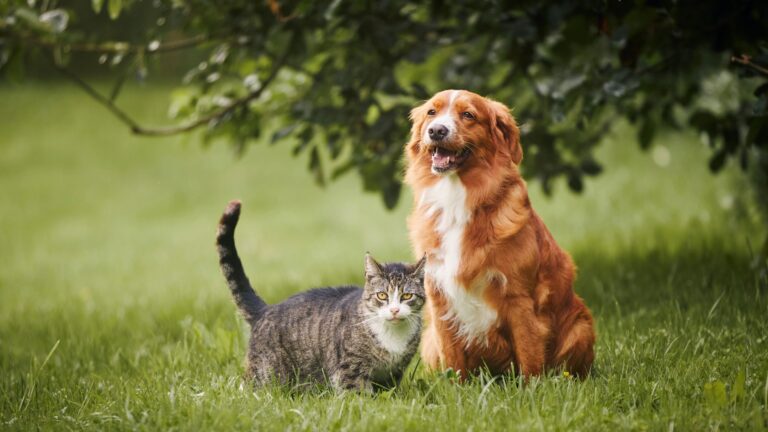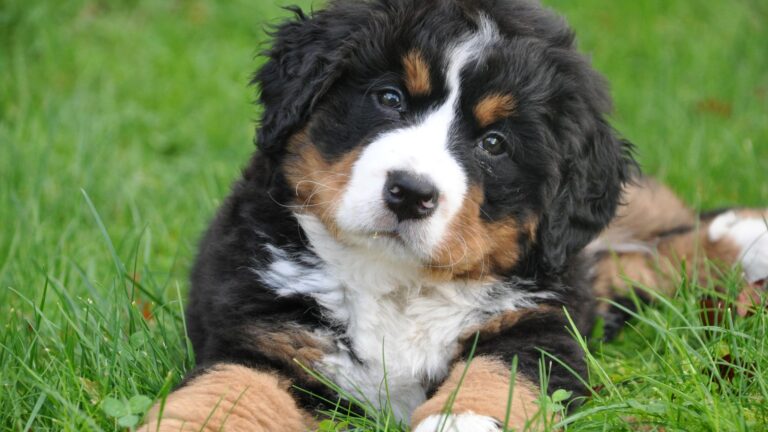Is Hoya Carnosa Tricolor Toxic to Cats: A Pet Owner’s Guide
If you’re a cat parent and plant enthusiast, you’ve probably wondered, “Is Hoya Carnosa Tricolor toxic to cats?” This question is essential for ensuring the safety of your feline companions while enjoying the beauty of this stunning houseplant. Let’s dive into the details to answer this crucial question and provide practical tips to keep your pets safe.
What is Hoya Carnosa Tricolor Plant?
Hoya Carnosa Tricolor, also known as the Wax Plant or Porcelain Flower, is a popular houseplant admired for its waxy, colorful leaves and sweet-smelling flowers. Its tricolor foliage combines shades of green, cream, and pink, making it a visually appealing addition to any indoor garden. Native to Southeast Asia and Australia, this plant is low-maintenance and thrives in bright, indirect light.
However, as pet owners, the plant’s aesthetic appeal isn’t the only thing to consider. The primary concern lies in its safety for cats.
Is Hoya Carnosa Tricolor Toxic to Cats?
The good news for cat lovers is that Hoya Carnosa Tricolor is not classified as toxic to cats. Unlike other common houseplants such as lilies or philodendrons, this plant is generally considered safe. This classification is based on databases maintained by trusted organizations like the ASPCA (American Society for the Prevention of Cruelty to Animals).
That said, while the plant isn’t toxic, it doesn’t mean it’s entirely risk-free. Cats are naturally curious creatures who may chew on plants out of boredom or exploration, which can lead to mild digestive upset.
Potential Risks of Hoya Carnosa Tricolor Plant
Although Hoya Carnosa Tricolor isn’t toxic, here are some possible risks associated with cats chewing on it:
1. Digestive Upset
If your cat chews on the plant, they may experience mild gastrointestinal issues like vomiting or diarrhea. This reaction is usually due to the ingestion of plant material rather than any inherent toxicity.
2. Choking Hazard
The plant’s thick, waxy leaves could pose a choking hazard if swallowed in large pieces.
3. Soil Contamination
Sometimes, the soil in potted plants may contain fertilizers or pesticides that can be harmful to cats. Even if the plant itself is safe, the chemicals in the soil can pose a danger.
Signs Your Cat May Have Chewed on Hoya Carnosa Tricolor
If you suspect your cat has been munching on your Hoya Carnosa Tricolor, watch for these signs:
- Mild vomiting
- Diarrhea
- Excessive drooling
- Signs of discomfort or pawing at the mouth
These symptoms are usually mild and resolve quickly, but if they persist, consult your veterinarian.
How to Keep Your Cat Safe Around Hoya Carnosa Tricolor
While this plant is considered safe, it’s always a good idea to take precautions to protect your curious cat. Here are some tips:
1. Place the Plant Out of Reach
Cats are excellent climbers, so consider hanging your Hoya Carnosa Tricolor in a macramé hanger or placing it on a high shelf that’s inaccessible to your cat.
2. Provide Cat-Friendly Alternatives
Keep your cat entertained with safe, chewable plants like cat grass or catnip. Offering these alternatives can deter your cat from exploring other plants.
3. Monitor Your Cat’s Behavior
If your cat shows interest in your plants, redirect their attention with toys or treats. Consistent reinforcement can help reduce the habit of chewing on houseplants.
4. Avoid Harmful Soil Additives
Use organic, non-toxic soil for your potted plants to eliminate the risk of chemical ingestion.
What Houseplants are Safe for Cats
If you’re looking for other cat-friendly plants to brighten your home, consider these options:
- Spider Plant
- Areca Palm
- Calathea
- Parlor Palm
- Boston Fern
These plants are not only beautiful but also safe for your feline friends.
Final Thoughts: Hoya Carnosa Tricolor Plant
To sum up, Hoya Carnosa Tricolor is not toxic to cats, making it a safer choice for pet-friendly homes. However, as with any houseplant, it’s essential to monitor your cat’s interactions to avoid potential risks like digestive upset or choking hazards. By taking preventive measures and offering safe alternatives, you can enjoy the beauty of your Hoya Carnosa Tricolor without worrying about your cat’s safety.
Always consult a veterinarian if you notice unusual symptoms in your cat after contact with any plant. Your pet’s health and safety should always be a priority.







Balloons are perfect for all types of events, be it a child’s birthday party or a sophisticated corporate function. Several local companies offer balloon delivery services, ensuring you can get the perfect decorations when needed.
Incorporating a natural terpene blend into your daily routine may support overall well-being. With the increasing recognition of the advantages of terpenes, a growing number of individuals are turning to these natural remedies.
terpene essential oils.
If you’re passionate about unique hairstyles, then
is your go-to shop. This online store specializes in all kinds of dreadlock styles, especially curly dreadlocks, handcrafted for a natural and flawless look.
You’ll find top-notch wavy dreadlock extensions made from safe, lightweight fibers — perfect for both daily wear and special events. Whether you’re aiming for a soft beachy vibe with dread waves, or prefer defined, voluminous looks like
curly end dreads, the variety is impressive.
Many clients choose styles like dread curls to highlight their facial features and add volume. Options such as curly loc extensions are ideal for quick installs, while dreadlocks for sale near me make this shop perfect for U.S. customers looking for convenience and speed.
Not sure what to pick? Popular collections include curly dreads female, or even vibrant and bold designs like synthetic ombre styles.
For those wondering long do curly dreads last], you’ll find detailed care instructions and options for realistic dread bundles — all reviewed by happy customers.
The store also offers localized options such as wavy dreadlock extensions near me, helping you find styles with fast delivery and easy tracking.
When you’re ready to transform your look, don’t settle for average — choose for unmatched quality, variety, and style that reflects your identity.
Searching for authentic natural locs?
Discover the best natural dreadlocks at natural dreadlocks, your trusted source for buying natural dreadlocks online.
Our selection of natural locs offers handcrafted extensions made from 100% human hair, ensuring a natural look for any style. Whether you want long natural dreadlocks or customized naturally dread hair, we have just what you need.
Why choose our natural dreadlock extensions?
– 100% human hair for lasting beauty and natural feel.
– Handmade with care by skilled artisans to blend seamlessly.
– Available in a wide range of colors, including earthy hues.
– Suitable for long-term wear
– Fast delivery with reliable service.
Buy natural dreadlocks that offer comfort and style. Our natural dreadlocks extensions are perfect for adding volume and length without compromising authenticity.
Explore the finest natural dreadlocks collection and take your hairstyle to the next level with realistic natural dreadlocks hair. Whether you are new to dreadlocks, we provide products that celebrate your unique identity.
Order now from Searching for natural dreads for sale?
Discover the best natural dreadlocks at dreadlocks natural, your trusted source for buying natural dreadlocks online.
Our selection of natural dreadlocks offers premium-quality dreads made from 100% human hair, ensuring a flawless blend for every hair type. Whether you want short natural dreads or customized natural dreadlocks hair, we have just what you need.
Why choose our natural dreadlocks for sale?
– Real human hair for durability and realism.
– Expertly crafted by skilled artisans to blend seamlessly.
– Available in various lengths and shades, including earthy hues.
– Suitable for long-term wear
– Fast delivery with tracking and support.
Shop natural dreads that offer comfort and style. Our natural dreadlocks extensions are ideal for anyone looking to enhance their look without compromising authenticity.
Explore the finest natural dreadlocks collection and take your hairstyle to the next level with realistic natural dreadlocks hair. Whether you are seasoned in natural hair styles, we provide products that celebrate your unique identity.
Order now from — your destination for natural dreadlocks. — where natural dread hair meets artistry.
If you are looking for a reliable garage door installation cost, contact our company in Englewood, Florida.
Finding the best garage door company in Englewood, Florida is crucial for ensuring the safety and functionality of your home. With so many options available, it can be overwhelming to make a decision. Conducting thorough research and taking various factors into account is essential.
Don’t forget to share your blog on different platforms. Employing social media effectively can broaden your audience base. Engagement from these platforms can drive traffic back to your blog.
Another important aspect of digital marketing is social media marketing. Utilizing social media allows brands to connect with their audience and foster loyalty.
Discover your perfect shades with color analysis near me and find your unique color palette.
Personal color analysis online is a unique service that has gained popularity in recent years.
Discover your perfect shades with summer color palette and find your unique color palette.
User reviews and testimonials can provide insights into the effectiveness of the service.